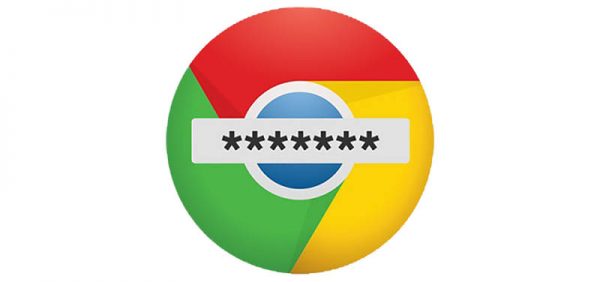Using a Password Manager vs Storing Passwords in a Password Protected File: Which Is Safer?

How do you manage all of your passwords? You probably have plenty of them if you are an avid social media user. Not to mention all of your service provider accounts, from your mobile service provider to your online banking and utility bills. You must be taking care of that online, and to transfer sensitive personal information, you need a personal account that is protected by a password.
So we clearly have a lot of passwords to take care of, and there are quite a few ways to manage them. We can store passwords in a protected file or we can use a password manager. In this blog post, we will discuss the aspects of both.
Table of Contents
The Importance of a Unique Password
Before we get down to the ways you can protect and store your passwords, we should point out one thing: All your passwords should be unique. Some users may think that they can use the same password for all of their accounts, and it would save them from the problem of coming up with different passwords or employing a password manager. However, such a solution can lead to devastating consequences because it is an understatement to say that using the same password for every single account is not safe.
Imagine if someone gets their hands on your password, and then they figure out that they can use it to unlock your every single account. Terrifying, isn't it? Using strong and unique passwords for every single account you have makes it harder for criminals to steal your information. Thus, make sure that you do not reuse your passwords. If you find it hard to come up with strong passwords on your own, you can use Cyclonis Password Manager's Password Generator to make new unique passwords for your accounts.
Storing Passwords in a Protected File
Quite recently, we have talked about password-protecting your Excel files. Although users may want to password-protect their files for various reasons, we do believe that there are people who want to list the passwords they use for their accounts in an Excel or a Word file for simplicity's sake. Afterwards, they can password-protect those files so that no one else can open them. So if they happen to forget a certain password, they can always access the said file.
If you are using this built-in feature to password-protect MS Office files, you will see that the password settings are practically identical across different MS Office extensions. However, you have to remember that Microsoft cannot help you retrieve forgotten passwords, so you have to use a password that is easy to remember, or you should store it someplace else. This is beginning to feel a little bit like inception, doesn't it?
Nevertheless, the point is that everything is done for security's sake, and if there is a way to protect your password, you should use it. After all, there are numerous methods to attack a password-protected file and extort the sensitive information. Strong and complex passwords are usually harder to break, but if cyber criminals employ multiple CPUs or cloud computing to execute brute-force attacks, weaker passwords will be cracked without much difficulty.
How About Using a Password Manager?
It is perfectly fine to store passwords in a protected file and then use a password manager, too. As mentioned above, you can use Cyclonis Password Manager to generate strong and unique passwords. You can also store your password that opens your password-protected file in the password manager's Notes section. This way, you won't have to memorize it or keep it written down on a piece of paper.
What's more, to make your life easier, you can choose to store ALL of your passwords in the password manager instead of keeping them in a separate file on your computer. Although a password-protected file is encrypted, a password manager offers you a stronger encryption, and you can be sure that your passwords will be kept safe under several locks.
The Private Notes section in Cyclonis Password Manager can also prove to be a lot more convenient than a single password-protected file because you would be able to access your data across different platforms. To achieve that level of convenience, you need to choose cloud as your storage space when you set up the password manager. If you do that, your data will be synchronized across different devices, as long as you log in to your Cyclonis account.
To log in to your Cyclonis account, you need your master password. You create this master password upon making a Cyclonis account, and this is actually the ONLY password that you have to memorize because the rest can be safely stored in your vault. Not to mention that a password-protected file could be affected by a malware infection. Let's say, if a ransomware program enters your system, it might encrypt all of your personal files, and you would no longer be able to access the file that stores your password. On the other hand, you would not have that problem if you used a password manager with cloud storage. Even if your files got affected by a malware infection, your data would remain safe on cloud.
To sum up, it is possible to store your passwords in a password-protected file and in a password manager. The main difference is that a password manager is more functional and safer, and storing passwords is the main function of such application. A file, on the other hand, is designed to store information, not passwords, and password encryption is just an additional feature offered by the developers.
On top of that, passwords managers are developed to be compatible with web browsers, and if you import your browser's passwords into your password manager, the application will log you in automatically in the websites you use. Yet, if you keep your passwords in a file, you will have to copy and paste your passwords every single time. Hence, a password manager offers you both: security and ease of access.
All in all, users can choose whichever password storing method they prefer. If you do not have that many passwords, perhaps a password-protected spreadsheet isn't such a bad idea. However, if the number of your passwords keeps on growing every single day, and if you need to constantly renew them, perhaps a password manager is a better option because it comes with all the necessary functions in one. You can generate a strong password, store it, access it across different devices, and you do not need to copy and paste it every single time. So why use a lot of different tools when you can have all in one?








